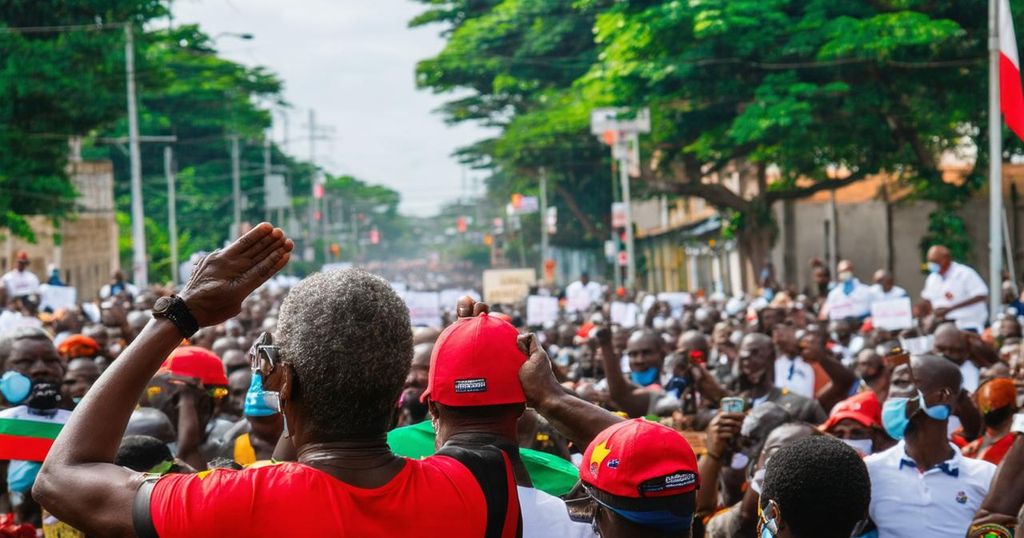Mozambique’s Frelimo Party Declares Election Victory Amid Fraud Allegations
Mozambique’s ruling Frelimo party has announced Daniel Chapo as the winner of the recent presidential election, securing over 70 percent of the votes amidst widespread allegations of electoral fraud by opposition parties. Venancio Mondlane, who came in second with over 20 percent, claims the election was manipulated. The political atmosphere is tense, with protests being organized and observed violence against opposition members. EU observers report irregularities in the election process, raising concerns about malpractice.
In Mozambique, the presidential election has culminated in the ruling Frelimo party declaring its candidate, Daniel Chapo, as the victor, having garnered over 70 percent of the votes according to the National Election Commission (CNE). This announcement arrives amidst ongoing allegations of electoral fraud brought forth by opposition parties. Daniel Chapo, the Frelimo party candidate, will officially assume the presidency in January, marking a historic occasion as he will be the first president born after Mozambique’s independence from Portugal in 1975. His principal rival, Venancio Mondlane, an independent candidate, received more than 20 percent of the votes and has vehemently claimed electoral manipulation favoring Frelimo. Following the election held on October 9, Mondlane has taken to social media to rally supporters for protests against Frelimo’s protracted grip on power, asserting, “The time has come for the people to take power and say that we now want to change the history of this country.” Other opposition figures have echoed concerns about the electoral process, citing potential irregularities and the alarming violence leading up to the elections, including the assassination of two opposition members. The EU observer mission reported disturbing findings, including restrictions faced by their observers during the vote counting and alterations in the election results at certain polling stations. This has compounded the opposition’s claims of a fraudulent electoral process, a charge that Frelimo has roundly denied. Additionally, the political landscape has been marred by violence and protests, with police actions resulting in the dispersion of dissenting voices, often through the use of teargas. The ongoing tension reflects a broader atmosphere of instability in the country, which has been historically plagued by civil discord since its liberation.
Mozambique has been governed by the Frelimo party since independence, a reign characterized by allegations of electoral fraud and manipulation throughout its history. Following a brutal civil war against the Renamo party, which has become the main opposition force, Frelimo has maintained control of the government and manipulated elections to remain in power for nearly five decades. Daniel Chapo’s ascendancy to the presidency marks a significant generational shift within the leadership; however, the circumstances surrounding the election are clouded by claims of impropriety and recent violent incidents targeting key opposition figures.
The recent presidential election in Mozambique, which resulted in Frelimo’s Daniel Chapo being declared the winner, has stirred significant controversy due to widespread allegations of electoral fraud and violence aimed at opposition members. Observers, including the EU, have raised serious concerns regarding the integrity of the electoral process. The political climate remains tense, as opposition parties plan demonstrations to challenge both the legitimacy of the election results and the nearly fifty-year reign of Frelimo. As Mozambique approaches a potential turning point in its political history, the reactions from both the government and opposition will be crucial in shaping the future of the nation.
Original Source: www.aljazeera.com




Post Comment